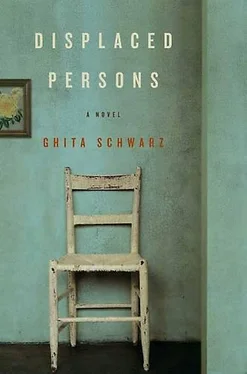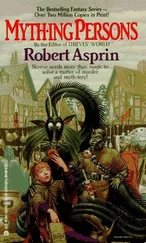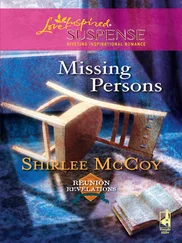“Okay, okay. Right. Cool!”
It was her vacation from work, but Lola missed her home in San Francisco, her exciting neighbors, the coworkers at the homeless shelter moonlighting as musicians. Lola wrote notes as she spoke, and though her pen moved quickly and the pages turned with a flurry, her conversation was limited to a few words: That’s really cool. No. No. Ohmigod, no. Exactly.
Lola had gotten the idea to make a children’s book with the title of Stinky. Lola’s mother had twisted her nose at the word. “That’s exactly the reaction we want!” Lola had said, between quick sips of coffee. The story of Stinky would be written by Lola and illustrated by the California neighbor, who worked as some kind of social worker, art therapist, with disadvantaged children. The tale was of a homeless child, Lola had told them, who was mocked in school, called names because he often was unwashed. Lola and the neighbor weren’t yet sure whether the child and his mother would move out of the shelter by the end of the story; some part of them thought that ending too optimistic, even for a children’s tale.
“We just don’t want that to be the focus,” said Lola. “We want it to be about his friendships, how he adjusts or doesn’t in school. You want kids to be aware, not too many illusions, you know? If we have to move him out, I guess we will, but we don’t want that to be the focus.”
“Why?” Sima responded. “Let him have a home at the end. Does it have to be so depressing for everybody?”
“Reality, Ma,” Lola said. “You should see how difficult it is for these guys to find a place. It’s the fucking Bay Area. Biggest rent-to-income gap in the country. Worse than New York!”
Sima straightened her back. “Well, Laiush,” she said, “I don’t care what anyone says about rent-to-income. I know about children. Children do not want to hear something so dark and terrible before they go to sleep. And by the way, why does everything have to be fucking, fucking, fucking?”
Lola did not respond. There were ten days left on her vacation, and she owed a mother-daughter trip to the museum. Lola would want to go quickly through a short exhibit, and Sima would be hurt; they didn’t have enough time together, what with Lola going on and on with her political discussions with Chaim, things Sima did not feel invited to participate in. How can you say that? Chaim had asked his wife in the privacy of their bedroom, Sima tearful and sullen. But in truth he liked his talks with Lola to be private, even if they disagreed. Sima took offense if he said something she could not agree with, and she hated his cool speeches about politics or religion. Must you talk on so? she would say. I don’t need to be lectured.
Lola did not feel lectured; Lola argued back. She asked questions. She was rude, yes, she wore lipstick too dark for her mouth and it made everything come out more harsh, especially with her mother. But it was not malice so much as heat. She was socially conscious. He didn’t want to discourage her. It was good to be conscious. Once upon a time he had been someone she would have been conscious about. But Sima felt personally betrayed by Lola’s opinions. Palestinians! Sima would cry. What does she know? And why should the family argue during the brief time Lola spent at home? No, Chaim tried to encourage his daughter to speak; it was good for her to speak, even if she was experimenting with her thoughts. If he silenced her the way Sima silenced her, she would not learn to speak.
CHAIM AND SIMA DROVE to their monthly card game at the Elbaums in Forest Hills. Tonight they arrived a little late. The others were already deep in conversation about the oral history project from Hollywood. Steven Spielberg. Chaim listened with interest. He was the youngest of the men by more than ten years, and among the few in the room who had the stomach to sit through Schindler’s List . Still the rest read of the director’s every move with pride and thrill, every article strengthening their bond with the genius that had brought their miserable history to life.
Lily was trying to convince the group to join. “We should not be the only ones out,” said Lily, in English. “The Glicks do it. The Treppmans do it.”
“Birds do it, bees do it,” sang Charlie. “Even da-da-da-da fleas do it.”
“We did it,” Pavel announced. Fela took a small cluster of grapes from the central bowl, put them on her plate, and brought one to her mouth.
What? exclaimed Lily, in Polish, excited, almost angry. With the Spielberg people?
Why not? answered Pavel, in Yiddish. They came to the house.
To the house? What, with the camera, everything?
A whole crew, answered Pavel. And very professional, no, Fela?
Oh yes, said Fela.
You know, said Pavel, Helen wanted me to do it. A few years ago, there were some people from Yale. She tried to get me to do it. To go there, they have a whole center for it in New Haven.
So? What happened?
He wasn’t ready! You have to be ready! cried Abek.
I was ready! protested Pavel. But I didn’t like them. I wanted her to go with me on the train, and they had said yes, of course, but she can’t be in the room.
So what? said Dovid. Why should she be in the room?
I didn’t want her in the room either! It was the way they said it. Why should they decide where I put my family? So I didn’t return their calls. Let them find some other idiot, who lets them order the family around.
Fela looked at Sima. See? she said.
But Spielberg, Pavel continued, the Spielberg project, they come to one’s home. That is different. A different story.
Did you do it too, Fela? asked Lily. Chaim could hear the envy pressing down on her voice.
I wasn’t feeling so well that day, said Fela, folding her napkin into her lap. I was tired. But I told them they were invited to my house anytime.
It’s important to do it, someone said. To save for posterity.
Should we be the only ones without something on television?
What do you mean, without something? Spielberg isn’t enough? All over the world people see it. He’s a millionaire from that movie.
He’s a millionaire already!
We don’t have anything big. We have that crazy museum, it made me crazy to go there.
No, no, not a museum. You have to go all the way to Washington for that. I mean on television. The black people have it. You know, there was-what was it?- Roots !
Roots was many years ago! Roots was twenty years ago! How can you mention that to prove anything?
Plus, they deserve it, after all they went through!
I’m not saying anything against them. No, no. Roots was a good program.
I learned something, said Sima, I didn’t understand what it was all about until that program. My aunt was here from Israel when it was on; she was very impressed by it, by what went on here.
You see? We should have a big program like that!
There was the miniseries with Meryl Streep, that one, with Tovah Feldshuh, remember?
Please! That was garbage, pure garbage!
Shouldn’t we too have a Roots , something for everyone to understand? Is it more important, slavery, than what we went through? Now they want a museum too, so why shouldn’t we have a television program, but a good television program? Should they have everything?
I don’t think we need to compare, said Charlie. I don’t think we need to compare. Slavery was bad too.
Sima smiled, sincere, approving.
Chaim saw something interesting last week, didn’t you?
Hmm? said Chaim, startled.
“On Channel Thirteen,” Sima said in English. “The civil rights? You couldn’t take your eyes off.”
“Oh, yes,” said Chaim. “Very interesting.” He paused but could think of nothing in particular to mention. His daughter had recommended that he watch it, a repeat on public television of a long documentary. He had watched the first portion. He liked to have something to talk about with his daughter, something to agree upon but also debate, without too many hurt feelings on either side.
Читать дальше











